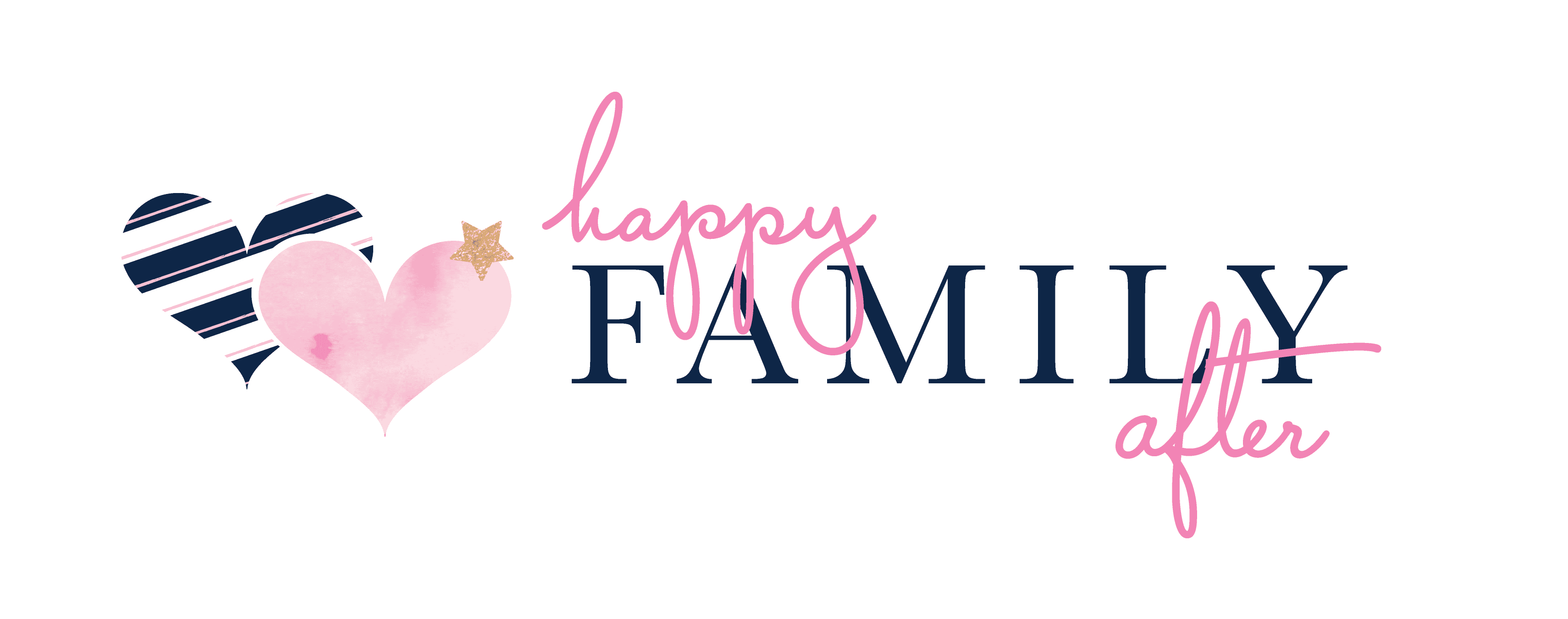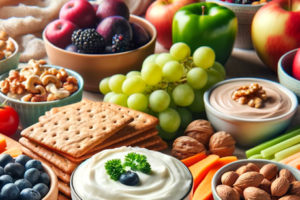Doulas in the Kitchen: Postpartum Snacks 101
Nutrition is important for delivery day and postpartum parents. Your body has been working hard to create a new life for the last 9 months, and now that the baby is here, your body still has work to do to heal from childbirth, replenish nutrients that have been depleted, and nourish your newborn, especially if you are breastfeeding.
What are the best postpartum foods and nutrition?
What should you be eating then? A diet comprised of lean proteins, plenty of fruits and veggies, healthy fats, and whole grains will keep you feeling your best. According to the CDC, postpartum women should consume an extra 500 calories a day while breastfeeding. For most people, that will mean three nutritious meals and several snacks throughout the day to stay satisfied. Learning to pick the right snacks will help you feel your best, and replenish nutrients that your body needs for postpartum recovery.
Consider your hydration needs
First things first, make sure that you are getting plenty of water. Maintaining adequate hydration is a vital part of postpartum recovery and can help reduce swelling, speed up recovery time, and prevent constipation. It’s also important to stay hydrated when breastfeeding, to replenish the hydration you lose from nursing a baby. Keep your water cup filled up and ready to go next to all your favorite nursing spots, bedside table, and anywhere else you frequent at home. You should aim for 8-10 glasses of water a day. You can also snack on fruits that have a high water content such as watermelon and grapes to aid in your hydration. Bone broth is another great way to replenish your body’s lost hydration and also contains collagen, a superfood that will help restore your body’s muscles and tissues and improve postpartum hair loss.
What are some good postpartum snacks?
A good snack should contain some protein, which will not only help keep you full longer, but also aid your body in important muscle and tissue repairs. Protein can be found in beans, nuts, meat, tofu, and many other common foods. Iron is another component to include in your snack. You need extra iron during pregnancy and breastfeeding as your iron helps transport oxygen in your blood, and is essential for energy production in the body. Choosing iron-rich foods to snack on will help your body with an energy boost and make up for iron reduction from blood loss. Iron-rich foods include legumes, nuts, seeds, and dark, leafy greens. Fiber is another important nutrient to look for when choosing a snack. Fiber helps keep your stools regular and soft, avoid constipation, and fiber-rich foods are packed with nutrients your body needs. Fiber can be found in avocados, berries, oats, chia seeds, and most vegetables.
Some postpartum snack ideas that contain protein, iron, and fiber:
- Smoothies (Make sure to add in lots of leafy greens, I promise you won’t even taste it!)
- Avocado toast
- Apple slices with nut butter
- Yogurt with berries (Mix in some ground flax seeds or chia seeds for added fiber and/or wheat germ for folate)
- Oatmeal with bananas and nut butter
- Trail mix with lots of healthy nuts and seeds
- Fresh veggies with hummus
- Tuna fish with whole wheat crackers or celery sticks
- Hard-Boiled egg with a dash of iodized salt
- Fresh fruits and veggies
Extra Postpartum Nutrition Considerations
If you are breastfeeding, you also want to make sure you have some extra iodine in your diet. Iodine is in iodized table salt, but it is not often added to today’s popular sea salt and Kosher salts. Iodine supports infant brain growth and development, and it is recommended that a person get 290 micrograms a day while breastfeeding (compared to 150 micrograms for general diets). Iodine can be found in seafood, seaweed, milk, yogurt, and cheese. There are 76 micrograms of iodine in one-quarter teaspoon of iodized table salt, so utilizing iodized salt in your diet will also help provide you with adequate iodine intake. Folate, also known as folic acid, is another important nutrient to include in your diet, especially if you are breastfeeding. Folate supports cell division and is especially important to healthy fetal growth and development. Good sources of folate include legumes, asparagus, broccoli, brussel sprouts, and eggs.
Postpartum Powerball Recipe (aka no bake “lactation cookies”)
These are a favorite snack I make for postpartum families, packed with all the makings of a great postpartum snack – protein, fiber, iron, folate, and best of all, they are delicious!
Research on lactation effects of these lactation cookies is unfortunately limited. However, even if the ingredients in these cookies don’t independently boost milk supply, they still offer essential nutrients and calories that breastfeeding mothers require — and, they are really delicious!
- ⅓ cup of nut butter (My favorite is Good & Gather Mixed Nut Butter with Seeds)
- ⅓ cup of hazelnut spread (Such as Nutella)
- 1 cup of oats
- ½ cup of ground flax seeds
- ¼ cup of wheat germ
- 1 Tablespoon of chia seeds
- ⅓ cup of finely chopped nuts (I prefer cashews but you choose whatever you like best!)
- 1 to 3 Tablespoons of local honey (If you are using a creamier nut butter such as peanut butter, you will not need much honey. I use nut butters that have no sugar added and they are often thicker and require a little more honey to get everything moist enough to roll into a nice ball.)
- Optional if breastfeeding: one tablespoon of Brewer’s Yeast
Combine all the ingredients together in a bowl. Then roll into 1-inch balls. Makes 10-12 so feel free to double or triple the recipe and store in the fridge or freezer for an easy to grab snack. You can add your own nut and seed or other topping preferences to make this recipe your own. If it’s too wet to roll into balls easily, add some extra ground flax seed until balls can be easily formed. If it’s too dry and crumbly to form balls, add honey one tablespoon at a time until the mixture is well formed enough to easily roll into balls.

